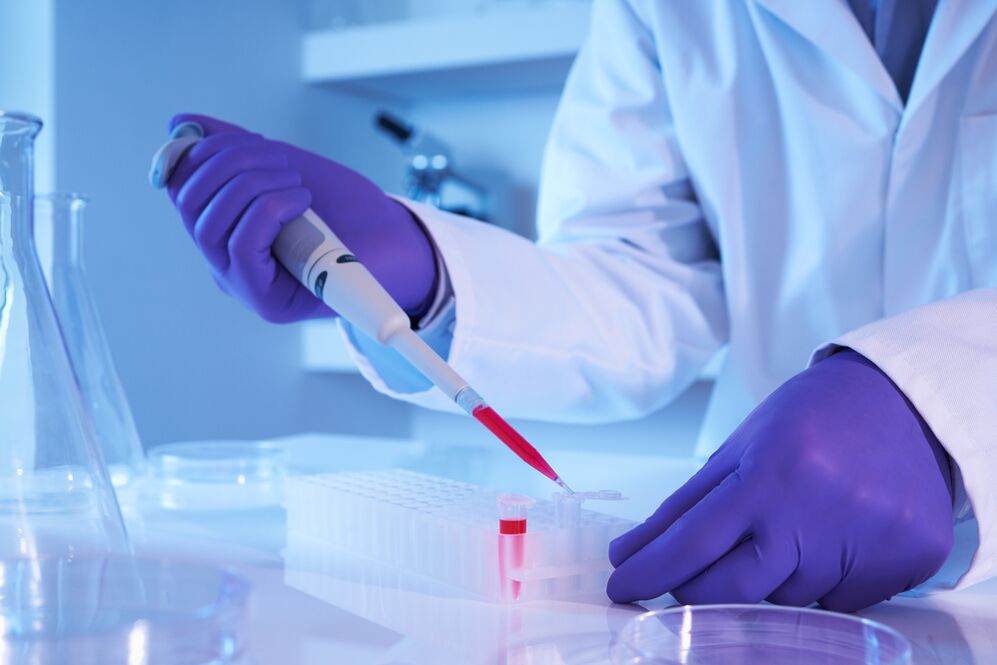
Chronic bacterial prostatitis is one of the most common types of disease. This form of the disease is characterized by the frequency of its manifestations, and the lack of timely treatment can lead to various disorders - to sexual dysfunction, as well as contribute to the development of prostate hyperplasia. But what is the causative agent of the disease and what are the consequences if left untreated? Let’s take a closer look at these questions.
What is bacterial prostatitis?
Chronic bacterial prostatitis occurs in 15-20% of all people who suffer from the underlying disease. The disease is typical for middle -aged men, as they still have a normal sex life and there is a relatively high probability of harmful bacteria entering their bodies. Harmful microorganisms with this type of prostatitis fall directly into the area of the prostate gland, where they actively multiply and interfere with the activity of organs that are very important for a man.
At the same time, inflammation can be promoted not only by the bacteria themselves, but also by their metabolic products.
Unlike other subspecies of the disease, bacterial chronic prostatitis has more pronounced symptoms, and microorganisms can spread not only within the gland, but also beyond it, interfering with the function of the bladder and other nearby organs.
The cause of the disease
The main causative agents of chronic prostatitis of a bacterial nature are bacteria that can enter the body during sexual intercourse and from the environment. Among pathogenic microbes, the following should be noted:
- Chlamydia;
- Streptococci;
- Staphylococci;
- Klebsiella;
- Pseudomonas aeruginosa;
- Trichomonas;
- Gonococci;
- Enterobacteriaceae;
- Escherichia coli.

The most common causative agent of the disease is E. coli, as it is found in 80% of patients with prostatitis.
Individual factors and diseases can also exacerbate the course of the disease and trigger its progression. There is a high probability of developing chronic prostatitis in men who:
- Lead an inactive lifestyle;
- Having pyelonephritis or cystitis;
- Has weakened immunity;
- Consumption of alcoholic beverages and tobacco products;
- Often supercooled;
- Susceptible to stress;
- Having constipation;
- Having an ugly sex life;
- Often in direct contact with the source of infection;
- Have a hormonal disorder;
- Not having a normal intimate life.

Keep in mind that chronic prostatitis, as a rule, is preceded by its acute form, so the patient has little time to prevent the progression of the disease. The reason for the development of the permanent form is the spread of bacteria throughout the body through the circulatory, lymphatic and other systems of the body, and as soon as the immune system weakens, for example, during a cold, the prostate gland can become inflamed. , in turn causing discomfort and several other consequences.
symptoms
The main symptoms of chronic bacterial prostatitis are similar to other types. Patients may experience:
- Pain in the lower abdomen;
- The inflammatory process is accompanied by an increase in body temperature;
- Muscle fatigue and general weakness of the body were observed;
- Urination may be accompanied by pain;
- There is pain in the anus and rectum.
Keep in mind that, in contrast to the acute form, the symptoms of chronic prostatitis are less pronounced. With the exacerbation of the disease, blood particles can be observed in the urine, and the pain syndrome increases significantly.

If you do not pay attention to this symptomatology and do not consult a doctor in a timely manner, there is a relatively high probability of complications in the form of:
- Development of purulent processes of the genitourinary system;
- Prostate adenoma;
- Problems with urine outflow;
- stone -like prostatitis;
- Infertility;
- Sexual dysfunction.
The same complications may also occur if you prescribe the wrong treatment or self-medication without first consulting a doctor.
Diagnosis of the disease
The diagnosis of chronic bacterial prostatitis can be made based on:
- General blood test - helps determine the transition of the leukocyte formula to the left, which indicates the course of inflammatory processes in the body;
- Routine urinalysis - will determine the increased content of leukocytes and erythrocytes, which are produced to fight harmful microorganisms;
- Three -glass urine sample - this analysis is similar to normal, only changes in 3 -glass urine sample will be more pronounced;
- Analysis of prostate secretion - in the presence of bacterial prostatitis, certain protein fragments will appear in secretions;
- Uroflowmetry - observation of the patient to determine the amount of daily urine, as a rule, is carried out by the patient himself in a hospital setting, and the results of the calculations are reported to the attending physician.

The diagnostic method is determined directly by the specialist. It is not impossible to make a diagnosis based on classical examinations and interviews.
Methods of treatment
In the treatment of bacterial prostatitis, a course of treatment is prescribed, which consists of:
- Antibacterial drugs, the duration of admission ranges from 1. 5 to 2 weeks;
- Non -steroidal anti -inflammatory drugs - will help relieve inflammation and relieve patients of pain;
- Muscle relaxants - prescribed for severe pain that do not allow the patient to empty the bladder, they relax the bladder wall.
The preferred symptom of bacterial prostatitis is a depressive state in which the patient is given an antidepressant. This helps reduce stress levels for the whole body, reducing the production of hormones that can negatively affect the course of the disease.
Also, with chronic bacterial prostatitis, a course of physiotherapy is often prescribed, which may include one or more procedures:
- Electrophoresis - the introduction of special drugs under the influence of electrical voltages of special frequencies;
- Ultrasound - activates the process of tissue regeneration, eliminates inflammation, prevents scarring and normalizes metabolism;
- Magnetotherapy - aims to normalize the circulatory process;
- Electrical stimulation of smooth muscles - allows you to relieve congestion, increase the movement of secretory secretions;
- Laser therapy - normalizes the performance of the prostate gland.
In some cases, prostate massage can also be used as a preventative measure, which helps relieve pain and increase organ activity.
Chronic bacterial prostatitis in recent years has been observed in patients with increasing frequency. This is due, first of all, to the increase in registration cases of STDs, especially chlamydia and candidiasis. This type of disease can occur regardless of age, although it most often attacks weaker middle -aged organisms.
























